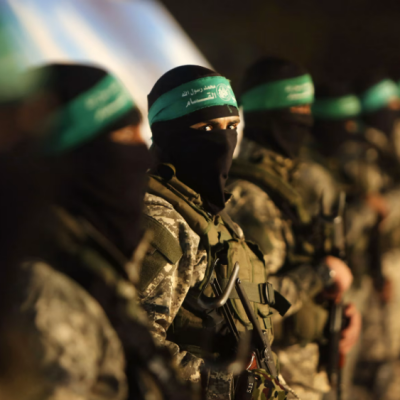By Sayed Ghoneim: Superpower and regional power states’ national security strategies.
During the previous decade, several Arab countries faced big challenges such as severe deterioration in economic conditions, education, health, etc. On the other hand, rates of inflation, unemployment, and corruption increased.
The increase of ethnic and sectarian disputes, the gap between the ruling elite and the people, political and security constraints, and interference in the parliamentary election procedures led to political and social division.
Foreign external intervention occurred in some Arab nations’ affairs to impose their influence and interests or to direct the situation to specific political and security courses.
These, along with weakening the ruling regimes, and in addition to unsatisfied populations led to the revolutions in Tunisia, Egypt, Libya, Syria, and Yemen.
The Arab Spring revolutions did not achieve their main goals, and the people were unable to meet the challenges of their revolutions’ results.

The failure of political Islamic regimes could be a result of mixing religion with policy attempts.
As a result of the deterioration of the situation, the spread of terrorism, and the escalation of sectarian and ethnic conflicts and civil war in Syria, Yemen, and Libya, in addition to Iraq, these countries reached a point describes as “failed states”.
These all led to the spreading of terrorism in the Middle East and North Africa (MENA), as well as some surrounding African countries, in parallel to confronting Iranian influence through the sectarian dimension in the region, while increasing the complexity of the political and security situation, especially in Syria, Libya, and Yemen, and then in Iraq.
Despite Turkey’s expanded efforts to adopt internal economic and social reforms, the announced Turkish general polices to have “zero problems” with neighbouring countries did not succeed because of the incompatibility of it policies with the strategies of the ruling party for last five years. Therefore, political ethnic terrorism continued in Turkey, as the strains increased with Kurds and neighbouring countries, especially Greece and Cyprus, in addition to other important countries like Egypt and Israel. Perhaps one of the main reasons was Turkish support to the political Islam project and regional maritime borders.
Along with Arab Spring revolutions and their percussions, in addition to other variables in different regions in the world, superpower and regional power states had to rework their national security strategies.
In 2011, US president Barak Obama and his secretary of state Hillary Clinton put amendments to the 2010 strategy, and then drafted an additional national security strategy in March 2015. Former British prime minister David Cameron also drafted Britain’s national security strategy in 2015, determining an accurate future global track for British security, prosperity, and international influence. Dmitry Medvedev, the previous president of Russia, had drafted the Russian national security strategy (2009-2020), until Vladimir Putin became the president and drafted the amendment of the strategy issued at the end of 2015; however, it was an effect starting from his first day as the president of Russia in 2012. On the other hand, it is not possible to find a declared national security strategy of China. However, American corporation RAND has developed what it called “Interpreting China’s Grand Strategy”.
Regionally, Turkish president Recep Tayyip Erdogan declared in 2014 his national security strategy under the name “New Turkey 2023”, and entrusted to convey it into the top ranks internationally. In Saudi Arabia, Mohammad bin Salman issued the 2030 Saudi vision in 2016, which seems to withstand many solutions of economic issues, supported by Saudi foreign secretary Adel Al-Jubeir foreign state’s strategy, which aimed for critical political and security parametres. Egypt has also developed the “Sustainable Development Strategy: Egypt 2030” which verifies its economic development and stability over the coming 15 years, in conjunction with current economic and social reforms. Israel has its own clear and specific long-term strategy supporting the concept of “State of Greater Israel”; however, I believe that short-term and medium-term strategies of Israel were clearly declared in the lecture titled “An Inside Look at Israeli National Security Strategy” given by former military intelligence chief, chief of army staff, and minister of defence of Israel Moshe Yaalon (Bogy) on 19 September 2016 at the Institute of Washington. It is worse to know that he declared his intention to run in the next election to be the next Israeli prime minister. I could not find a complete Iranian national security strategy declared in the media; however, I could depend on several published studies around it in the internet.
US national security strategy 2015
The strategic vision of the US national security strategy is to maintain its single-pole global power, secured and prosperous, enabling the US to form the political and economic global map. Strategic goals include profit and domination, and to maintain its people and allies’ security, stability, and prosperity, and to respect its values inside the US and all over the world.
These goals should be achieved through four major axes: security, prosperity, values, and world order.
 UK national security strategy 2015
UK national security strategy 2015
The strategic vision of the UK national security strategy is a secure and prosperous United Kingdom, with global reach and influence. Strategic goals include to protect British people in and outside the UK, to project the UK’s global influence, and to promote British prosperity.
This should be achieve through supporting the armed forces and security and intelligence agencies, supporting alliances, supporting the British institutions, tackling terrorism head-on and countering extremism ideology, maintaining excellence in the fields of information security, help strengthening the rules-based international order and its institutions, joint action to curb conflicts, promoting British values, and promoting stability, good governance, and human rights.
Russian national security strategy 2016
The strategic vision of the Russian national security strategy is to return as a counterpart of global power to the US, expanding Russian global influence, and ensuring that Russia is secured and prosperous. Strategic goals are to enlarge the Russian Federation’s political, economic, military, and technological powers to return as a counterpart global power against the US and to be able to deter NATO forces. Russia does so through reducing US influence in areas of interests, especially in Asia and the Pacific, in addition to the Middle East and North Africa regions, through Russian strategic relations with the countries of those regions, as well as continue to control the gas market in Europe.
China’s possible national security strategy
The strategic vision of the Chinese national security strategy is maintaining the “One China” policy, insuring a secured, strong, and prosperous nation of global economic influence, leading to a parallel global political influence.
Strategic goals are to maintain its economic influence, as a major support to the geopolitical influence, control the sea borders and ward off all threats against the state and its regime, and protect the internal order and facing challenges of social conflict.
These goals will be achieved through four major axes. Firstly, seeking international support for the growing strength of China’s role, and ensuring stability in Asia, in reference to the international community and superpower states, especially the US. Secondly, toward its military forces, making it able to support the diplomatic and political influence, developing its military forces slowly but surely, and ensuring a continuous focus on economic development. Thirdly, regarding the settlement of regional conflicts and the unity of China, avoiding the usage of force, and adopting a policy of good neighbourliness. Lastly, regarding international order, securing greater strengths without incurring losses. Therefore, the size of the Chinese participation globally in economic development, trade, transfer of technology, weapons control, environment, etc., is determined on the basis of each individual case.
Iran’s possible national security strategy
Iran aims to enlarge its economic, military, nuclear, and technological powers, using its diplomatic and soft power to enable the Iranian nation to achieve regional supremacy and influence, with an effective cultural power on the surrounding communities, and to achieve a change in the regional formula on the long term. It also aims to support those who were suppressed by dictators in any point in the world.
Turkey’s national security strategy 2023
The strategic vision of the Turkish national security strategy is to achieve a “New Turkey”, as one of the superpower states by the end of 2023.
Its strategic goals include becoming a superpower state, through enlarging its national powers, insisting on implementing the international political, economic, security, and social laws and standards to be strongly qualified for membership of the European Union and a permanent member of the UN security council. Regionally, the goal is to enlarge its role in Europe and the Middle East by consolidating its regional influence in eastern Europe politically and economically, and in the Middle East politically, economically, militarily, and socially.
Israel’s possible national security strategy
The strategic vision of the Israeli national security strategy is ensuring a secured and prosperous powerful state of Israel with a thriving regional influence extended internationally across the Middle East.
Strategic goals are to secure the vital area, achieving its security demands, and develop its political, economic, social, and security relations with the Middle East countries, as well as reducing hostilities. It also includes ensuring the continued excellence of Israel, making it always the active central state in the region and maintaining a close alliance with the US.
Sayed Ghoneim is a retired Major General of the Egyptian Armed Forces and a fellow at the Nasser Higher Military Academy.




